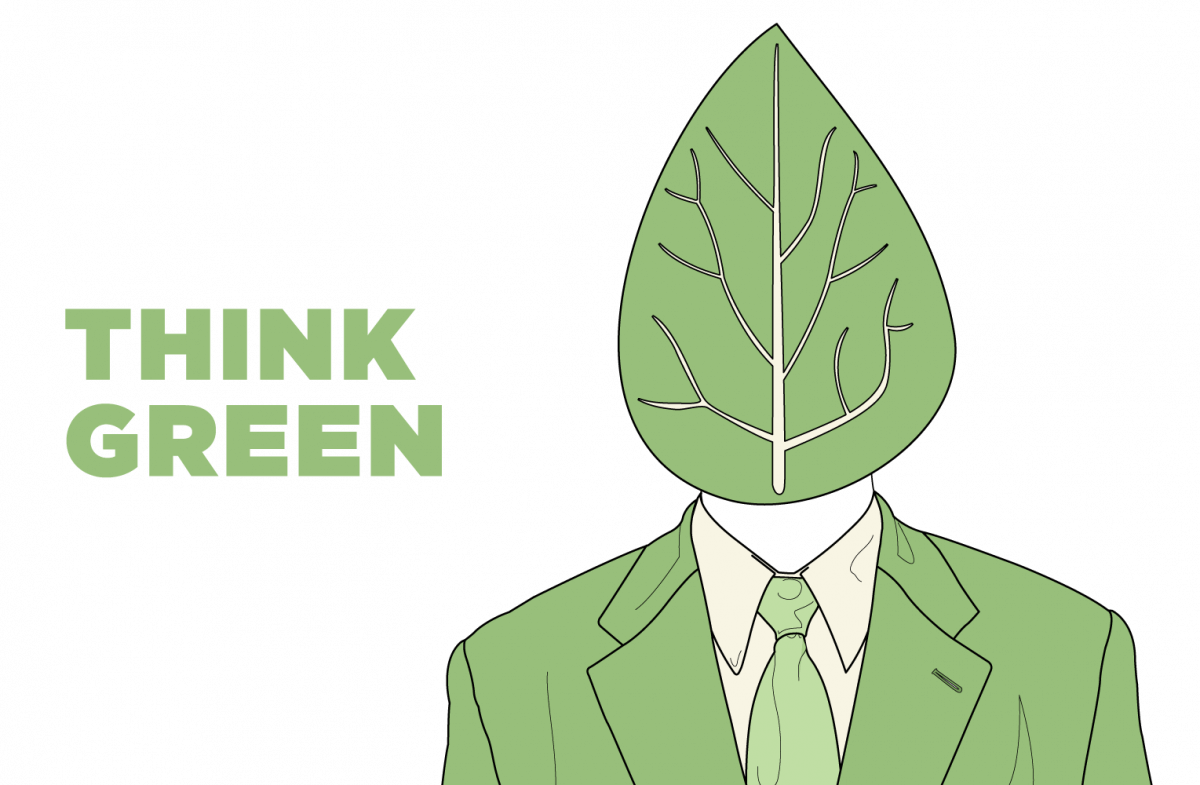by The Cowl Editor on March 23, 2017
News

by Sarah Gianni ’18
News Staff
Donald Trump’s recently released budget proposal calls for a 31 percent cut to the Environmental Protection Agency, reducing funding from $8.1 to $5.7 billion. This potential cut could translate into destructive environmental action such as the halt of community cleanup initiatives or fewer regulations on polluters contaminating the environment.
When looking at our Providence College community, clear efforts have been made on campus to support environmental protection. The Providence College Office of Environmental Health and Safety has served as a resource committed to providing a safe and healthy environment for students, faculty, staff, and visitors.
In order to achieve these goals, the office places a notable emphasis on recycling in an effort to reduce waste and promote a more sustainable, environmentally conscious campus.
“I think there are still quite a few people that do not take recycling seriously enough,” said Health and Safety Coordinator Thomas Schenck. “Don’t get me wrong, we do recycle quite a lot at PC—over 200 tons last year—but there’s always room for improvement.”
Despite the College’s attempt at recycling, Schenck said it also produces “apporoximately 1,000 tons of trash.”
In both Alumni Hall and Raymond Hall dining facilities, the food service and facilities management company Sodexo has jurisdiction over how recycling is handled. Other eateries on campus; such as the Starbucks in the Ruane Center or the Dunkin’ Donuts in Slavin, operate as their own entities.
While there is a designated recycling bin across from Dunkin’ Donuts, employees continue to provide students with hot cups to place their cold drinks in. “People don’t realize how damaging those Styrofoam cups are and how it takes hundreds of years for them to decompose, if they ever do at all,” said Schenck.
Despite signs over trash bins in Alumni Hall indicating whether they are for trash or recyclables, non-recyclable garbage is still being thrown away into incorrect bins. Students sometimes may see recyclables thrown into the trash by workers, but this is the result of contamination.
“These facilities will bring out their recyclables if it has been kept separate, but they can’t do it if the recyclables and garbage have been mixed together,” said Schenck. It is not the responsibility of staff to dig through trash and recycling to separate the two.
As a community, the question arises as to how to address this issue. Education on what to recycle as well as how to recycle in different areas on campus is a place to start. Many times, paper products with food waste such as paper plates or pizza boxes are wrongly thrown into recycling bins, forcing staff to throw the contents of the entire container into the garbage. Plastic products with food waste, however, can still be recycled, as these items are rinsed of any remnants.
“Through educating the student body, for instance in the dorms during floor meetings, we can work to make people more conscious about recycling,” said Schenck. Another educational tool for community members is “The Campus Green” newsletter put out by the Office of Environmental Health and Safety.
This resource expands on topics such as recycling procedures on campus, as well as various environmental events occurring both on campus and in the area. The Campus Green is available to anyone online at http://www.providence.edu/recycling.
While PC continues to work toward greater waste reduction and a greener campus overall, students and faculty can help improve our recycling goals through education and conscious decision making—one can at a time.